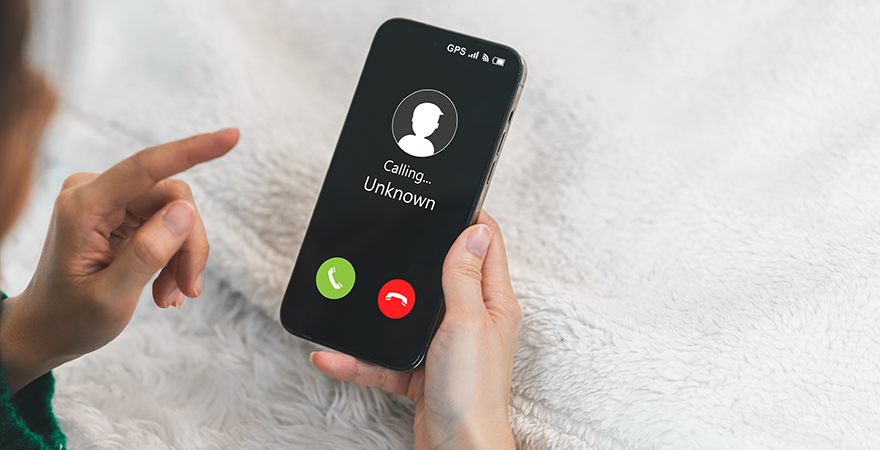Impersonation scams are on the rise, especially those aimed at customers of financial institutions, and they’re becoming increasingly sophisticated. The good news? You can stay one step ahead.
By understanding how these scams work and spotting the red flags, you can safeguard yourself and your hard-earned money.
How impersonation scams work at financial institutions
Scammers are getting smarter using clever tricks and technology to pose as legitimate banks and credit unions to catch victims off guard. Here’s a look at their go-to tactics:
- Alerts about "fraudulent activity": Scammers use alarming texts, emails, or robocalls to claim there’s fraudulent activity on your account. If you respond, they can quickly contact you pretending to be from your financial institution.
- Fake caller ID: Scammers use caller ID spoofing to make their calls appear as if it's a genuine call from your bank or credit union.
- Fraud department impersonation: Posing as representatives from the fraud department, scammers create a sense of urgency by questioning whether you authorized a specific transaction and making you feel like the only way to stay safe is by giving them your card or account information.
- Passcode request: To "assist" you, scammers request a one-time passcode sent to your mobile device, which they then use to gain access to your accounts.
- Phishing for personal information: Scammers often use fraudulent emails to ask for sensitive information, such as account numbers, passwords, or personal details, pretending they need it to verify your identity or protect your account.
- Transaction approval trick: Scammers may initiate a transaction and instruct you to reply “yes” to confirmation texts, falsely claiming it’s part of a system test or a step to authorize transactions. This tactic is often used to trigger one-time login codes and gain unauthorized access to your accounts.
How to protect yourself
The most effective way to protect yourself from impersonation scams is to stay vigilant and practice these safety tips.
- Never click on links. Never click on suspicious or unexpected links in emails or texts claiming to be your financial institution, even if you’ve signed up for alerts. To confirm notifications, always go directly to the organization’s official website or log into your account through a secure online platform or mobile banking app.
- Hang up, then verify. If you receive a suspicious call, hang up right away then contact your credit union or bank directly.
- Never share personal information. Financial institutions, when contacting you, won’t ask for your account number, card details, PIN, password, or one-time login code by phone, text or email. Only share this confidential information if you’ve contacted your bank directly through a verified method. However, if you initiate a call to a financial institution, they will request some sort of personal or account information in order to verify your identity in order to assist you.
- Don’t trust caller ID. Caller IDs can be spoofed to show the name or number of a financial institution, making the call appear genuine. Always approach unsolicited calls with caution, even if they seem legitimate.
Reporting impersonation scams
If you’ve been targeted by an impersonation scam or fallen victim to one, it’s important to act quickly to reduce any potential damage. Here’s how to respond:
- Contact your financial institution. Notify your bank or credit union and provide them with a screenshot of the scam message or details of the call. If money has been lost, report the incident immediately as they may be able to halt the transaction.
- File a police report. Filing a report with your local police department helps create official documentation and can help recover financial losses. For example, some home insurance policies include fraud loss protection and an official report may be required to make a claim.
- Report fraud to the federal government. File a complaint with the Federal Trade Commission (FTC) at reportfraud.ftc.gov and the FBI’s Internet Crime Complaint Center at IC3.gov. These reports help identify patterns and aid in investigations targeting scam networks.
- Contact the AARP Fraud Watch Network Helpline. Call the free helpline at (877) 908-3360 to speak with trained specialists who can guide you on what to do next and how to protect yourself from future scams.
Impersonation scams prey on your trust and create a sense of urgency to steal money or personal information. Knowing how they work and being cautious with unexpected messages can keep your information safe. If something seems suspicious, pause, verify, and ask for help to protect yourself and your finances.
If you suspect any suspicious behavior to your Pacific Service Credit Union accounts, please contact us immediately at (888) 858-6878. We are here to help you protect your information.
